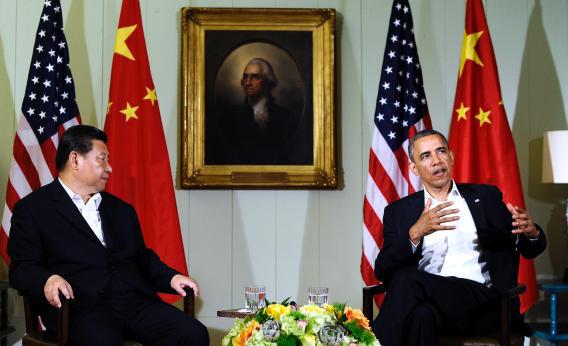Last week, President Obama met with Chinese President Xi Jinping to discuss the ongoing problem of Chinese cyber espionage. The Obama administration has recently detailed increased efforts by some companies and their governments (most notably Chinese on both counts) to steal valuable information from the U.S. involving military hardware, hybrid technology, organic pesticides, and mobile communications, to name a few.
The discussion of “cyberwarfare” makes this threat sound new, exotic, frightening. But in truth, this is really the age-old practice of stealing commercially valuable information, like the theft of Chinese plants to make English tea. (Thievery is a two-way street.) It’s just trade secret misappropriation using new technology.
Unlike other intellectual property issues—say, copyright infringement on the Internet—trade secrecy is usually not on the radar screen. Or, to put it more bluntly, trade secrecy is ignored by those who don’t have a stake in it—people who own valuable information and those who would steal it so as to duplicate the product (or whatever the case may be) for their own commercial gain. Those days may have finally ended—but rash responses to the cybersecurity threat could hurt the movement to give the public more access to important information.
Although there’s a real debate about what trade secrecy is even supposed to achieve, it’s primarily intended to spur innovation and to control who has access to what information. But trade secret law was not conceived or written with the today’s world in mind. We’re now playing legal catch-up, except the game is being played with an extreme sense of urgency because the United States’ biggest economic competitor is accused of ongoing theft of American trade secrets.
These are not the ideal conditions under which to calmly and thoughtfully rethink the law, but the general belief is apparently that something must be done immediately to stop, or at least curtail, the theft. Attention is being paid to trade secret law at all levels of government. Last month’s United States Trade Representative annual review of “the state of intellectual property rights protection and enforcement in trading partners around the world” highlights “escalating” theft of U.S. trade secrets. These concerns are apparently on the table in the hyper-secret, multilateral Trans Pacific Partnership negotiations, which recently finished its 17th round of negotiations. The Obama administration is also considering public comments on how to improve the law so as to thwart “economic espionage and trade secret theft.”
But though this wide-ranging discussion about reforming trade secret law is welcome and long overdue, the “cyberwar” framing could further entrench dangerous trade-secrecy policies. The effects of overreaction could be profound, hampering the development and use of new forms of innovation and potentially limiting legitimate information gathering (also known as “competitive intelligence”).
Perhaps even more significantly, on the federal, state, and local levels, there’s an ongoing debate about whether the hydraulic fracturing (fracking) industry’s trade secrets should be shared with regulators before such activity commences, so as to address possible environmental, health, and safety risks. (I’ve argued that they should be.) Trade secret law does not take into consideration that the public may have a strong interest in accessing that information. Instead, the public is viewed as tantamount to a competitor. And the range of what can be called a trade secret is staggeringly broad: The same law that protects KFC’s fried chicken recipe also governs (and thereby can deny) public access to information about many issues of national importance, like the safety of fracking, the operation of voting machines, and the composition of our food supply, like the “pink slime” in beef products.
The implications of trade secrecy’s dual power to encourage innovation while simultaneously limiting access to that same information are vast. For example, the USTR has pointed out that robust trade secret protection could help fight climate change by encouraging the creation of technologies designed to mitigate and/or adapt to it. But wouldn’t the public deserve to know about the risks, downsides, and effects of such technologies?
In the upcoming months, Congress, as well as the negotiators of TPP, the recently announced Trans Atlantic Free Trade Agreement, and perhaps other international agreements yet to be named will debate how trade secret law should react to the new world into which it has been thrust.
Maybe negotiators and lawmakers will come to realize that trade secret owners are not the only entities with interests at issue here. Academics, civil society groups, state regulators and the public at large all have a significant stake in how the United States reacts to the threat of Chinese cyber espionage. Hopefully the discussions will take place transparently and with diverse input. Trade secrecy is having its moment in the sun—but hopefully we won’t end up getting burned.
